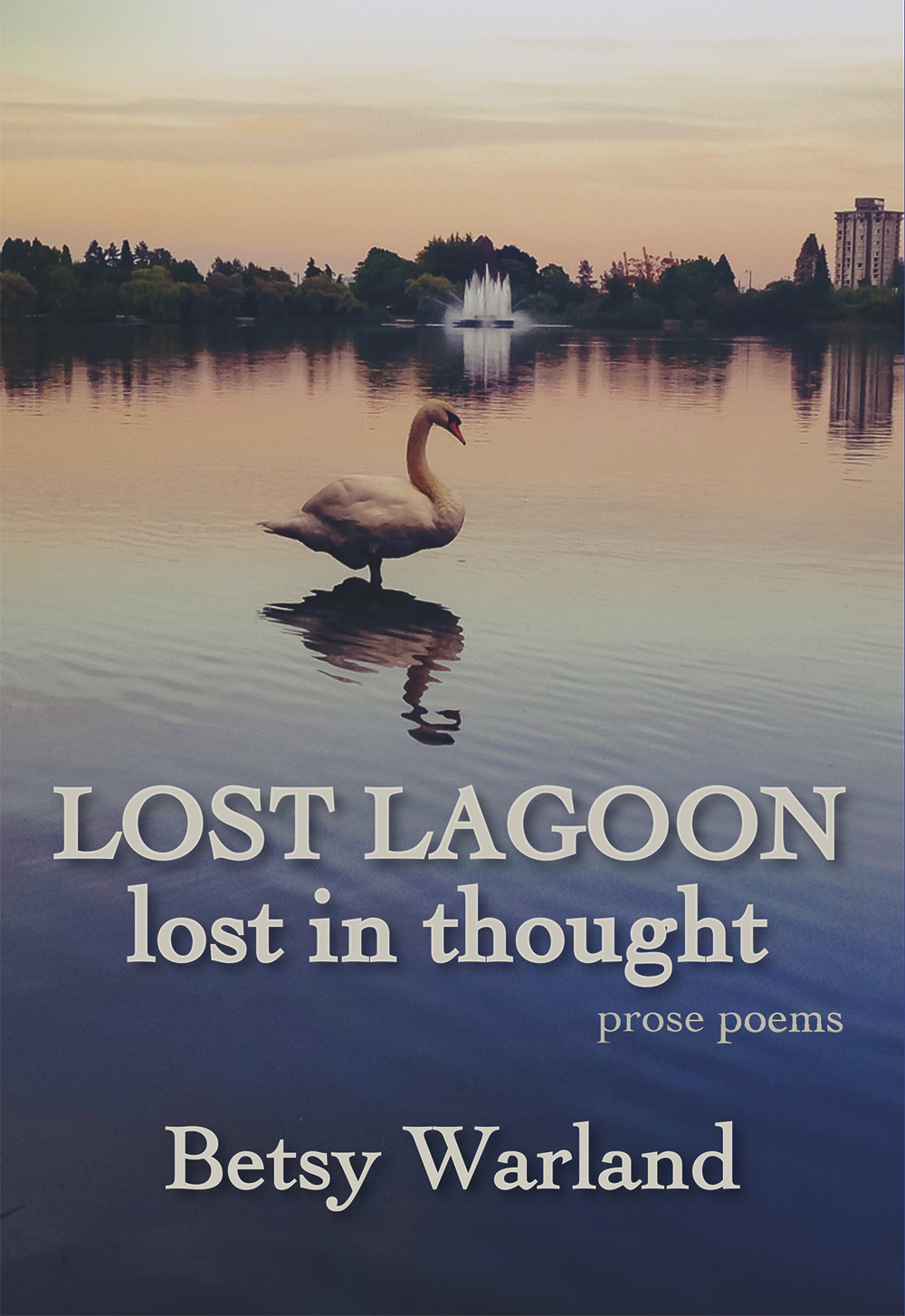Lost Lagoon/lost in thought
2020 Caitlin Books
Watch online book launch that took place on April 16, 2020.
Watch book reading at Lost Lagoon, Stanley Park in March 2021.
Lost Lagoon is also available for purchase at Massy Books or from Caitlin Press.
An ebook is also available through Amazon, Barnes and Noble, iBooks or Kobo.
From Caitlin Press:
“In trademark lyric prose, Warland’s roving observations in and around Vancouver’s Lost Lagoon offer insights into nature, narratives, and the urban environment.”
A soliloquy on life and loss by a poet who has become attuned to the natural world, specifically the microcosm of Lost Lagoon in Vancouver, and its ecosystem. Warland’s Lost Lagoon/lost in thought is an artistic affirmation of the sacred but humble space humans occupy in the cosmos, and of the magical reciprocity a human can establish with the flora, fauna and physical world around her. Lost Lagoon/lost in thought is a stunningly beautiful work.
The miracle of Lost Lagoon / lost in thought: prose poems (Caitlin Press) is that although Warland does all the talking during this walk, you come away feeling like you’ve been closely listened to.
Always visionary, Betsy Warland creates textual mirrors of
contemplation wherein we see both place and soul, in a voice that is
plain spoken, tender and inviting: long after reading, her words will
resonate with their simple profound messages.
Speaking through an individual she calls ‘The Human,’ Warland engages in a deep meditation on our role within the natural world through the microcosm of Lost Lagoon’s flora and fauna.
Lost Lagoon/lost in thought is an extraordinary love spell cast by a
master magician. We listen as with almost mathematical purity—quiet
or sharp, humorous or spare—Betsy Warland evokes the mysteries
and beauties of her beloved lagoon, and cries out with wisdom and
grief for the losses of nature, and the life that remains. This is the
magic of a deeply noticing mind. Read this book. It will fill you to the
brim with the rustle of the non-human. In her slice of nature, Warland
makes us whole.
Warland struggles with the thorny concept of “the natural world” and our sense of separateness from it. She notes how rapidly in the past century we lost our connection to the land — converting mostly from farmers to modern urban dwellers. The upheaval and devastation this has wrought are real, but Lost Lagoon/ lost in thought is not so much about going “back to the land” as forging a new relationship with our surroundings that is thoughtful, compassionate, and authentic.
As I read this poetry, I wrote notes, as if on a walk at Lost Lagoon with the author.Thus, these notes are addressed to Betsy.
Page 8 – Introduction to The Human. The relief of having no given name or surname – defending identity. I felt that. Tears sprung. Betsy, at first, I didn’t understand the reason for your defining yourself as The Human. It seemed as if you were separating yourself from the reader, but really, you were simply blending into nature, or subjugating yourself to nature, instead of dominating. Then again, if you were intentionally separating yourself from the reader, I see it now as an invitation to join you in nature, to disconnect from the THEM (Nature) and US mentality, and enter the WE mentality. We are part of something much bigger than humankind.
Lost Lagoon, the oddly named pond at the edge of Vancouver’s Stanley Park, serves in this lapidary work as Warland’s version of Thoreau’s Walden or Annie Dillard’s Tinker Creek.
The reader is drawn in partly by the acute observances of beavers, swans and herons, but also by Warland’s descriptions of writer’s life, loss and grief, acceptance and adaptation. As you read, you find you, too, are listening and watching, finding yourself again.

